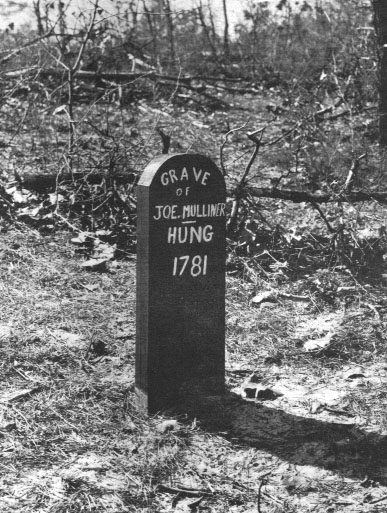Joe Mulliner: The Infamous Jersey Outlaw of the Late 1700s

Image courtesy of Lost History
October 17, 2021
In the revolutionary war period of Colonial America, Joe Mulliner made a name for himself as the “Robin Hood of the Pines.” The Pines refers to the Pine Barrens located in southern New Jersey. Mulliner, unlike most revolutionary legends, was actually a Loyalist. Being that Mulliner was a Tory, he created a very polarizing persona, as he was hated by the Patriots and beloved by the British.
The Patriots were obviously not fans of Mulliner and his actions, as he was described to be moved by the instigation of the Devil. He was also said to be the terror of the country. However, what did Mulliner do to earn this infamy? Mulliner was responsible for burning down patriot property and taking prisoners of war. Some stories state that Mulliner would burn down one’s home and then kidnap and bring them as a prisoner to the British Officials. Being that he heavily targeted the patriotic population, colonists began to spread the idea that Mulliner not only attacked “rebels” but also Loyalists. Whether this was true or not, the Tories held him to a much higher standard. The British looked at Mulliner’s actions as one of an Associated Loyalist, which was a colonist who supported the British and took “rightful” action against the Patriots.
Furthermore, it turns out that Mulliner was additionally a sailor and worked as a privateer for a British whaleboat. When he was not sailing, Mulliner lived in the woods with his crew, hence the nickname “Robin Hood of the Pines.” There are many legends that sight him and his outlawed gang in the woods, but there are few factual records that back up these claims. However, considering the conditions of the late 1700s it might just check out that there is little recorded evidence to support the claims as a skilled group of tactic thieves could get away with their actions a lot more easily than in today’s world.
Joe Mulliner was eventually captured and arrested in 1781 at the Indian Cabin Mill Inn. He was later executed and his remains were buried at High Bank. Although there is a general location of where Mulliner was buried it is heavily debated where his exact remains might be. Like his place of burial, Joe’s life and legends are still up for great debate as to how accurate they really are. Some say he was just a Tory Outlaw, while others suggest he killed with no reason but the guidance of the devil himself. Although not much is for certain about the facts of Joe Mulliner, it is definitive that his tales would continue and hold on against the test of time.
